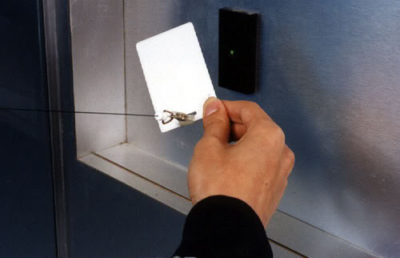Understanding Single vendor Captivity
Definition
“Single Vendor captivity” crystallizes when a system or major asset can only be repaired and maintained by a single supplier. The System or asset which has been purchased, is typically specialized in its purpose and unique in it’s technical nature. Hence, there are few, if any, alternative vendors to seek service from.
Why Pay More?
There are circumstances when paying more, for the specialized vendor, it is an investment, with indirect returns in reliability and efficiency of the system or asset; There are, at times, circumstances when there is clearly an effort of price gauging by the vendor and customers are simply taken advantage of.
Not all vendors / suppliers are unscrupulous in their methods, many are transparent and keen to provide a long term service for their client, without “locking in” clients with “single vendor captivity”. So Why pay more?
Diligence may Save the Day?
Diligence, everyone’s favorite word in commercial property!
There are often other vendors which can provide the same services, repairs, maintenance and same products, as the “exclusive” vendor, you just don’t know who they are. These vendors, can be difficult to find, they are not your typical “Search Engine First Page” crew.
Consider “boutique” vendors and avoid single vendor captivity
These Vendors are typically the genesis of a disgruntled employee from a major supplier whom knows the “trade secrets” of the organization’s products and services and has decided to start his or her own business. They are not cashed up, hence, their resources for effective web sites are low which is why the “first page” of your favorite search engine is not where you will find them.
So where are they hiding?
Technology in a Different Dress
People in Technologies often move in the same circles, they compete for the next best idea and developing that idea into a tangible and salable product. To Protect them selves, they might patent this idea. A competitor might see this new technology as viable for their products and sales. They buy the equipment from the first company, and with their permission (and all the other legal stuff) put their badge on it.
They do not claim their technology as their own, they don’t need to, they just need to have it available to compete in the market place. Whom actually owns the patent is not a concern form the procurement manager’s view, the manager just wants to know you have the genuine item and it can be supported for the long term.
An aggressive competitor might actually reverse engineer a new product, (this almost never happens) make a few changes, and release their version onto the market. A lot of effort required here, hence, we could have potentially two products providing a similar purpose, but not the same compatibility or the same technical support.
How do you find the second almost identical product and will it work?
Talk to the Technician
The technicians who attend your site will know the products, know the companies which make the products, know the competitors, know the “work around” and know the “cracks” which can “open” the product or system up. The benefit to you, in talking with these people, is they have no direct financial interest in the outcome of your conversations, so generally they are happy to talk “tech” with you as an interested party.
These technician also know the disgruntled employee whom has just started his own business with a similar product or system and maybe keen to offer their details as loyalty among the technicians is strong (this is one of many places to find that elusive independent vendor).
Whats in it for you
If you decided to work with the new business of the disgruntled employee (they are not all disgruntled, this my “poets license”), as the purchaser of the services and/or products, what is in it for you? – Cheaper maintenance and repairs, a more reliable and “keen to please” technician and…….. more risk!
The Risk
The Risk involved is a entirely new discussion, there are some positives too, in moving away from the large vendor versus the recently started new vendor.
The Point we wanted to get a cross here, is that, although you may be feeling like you are locked in as a captive client to a particular vendor, there are ways to work around this, you are not captured! You just need to apply a little diligence and investigation, (yes, I know, easier said than done).


